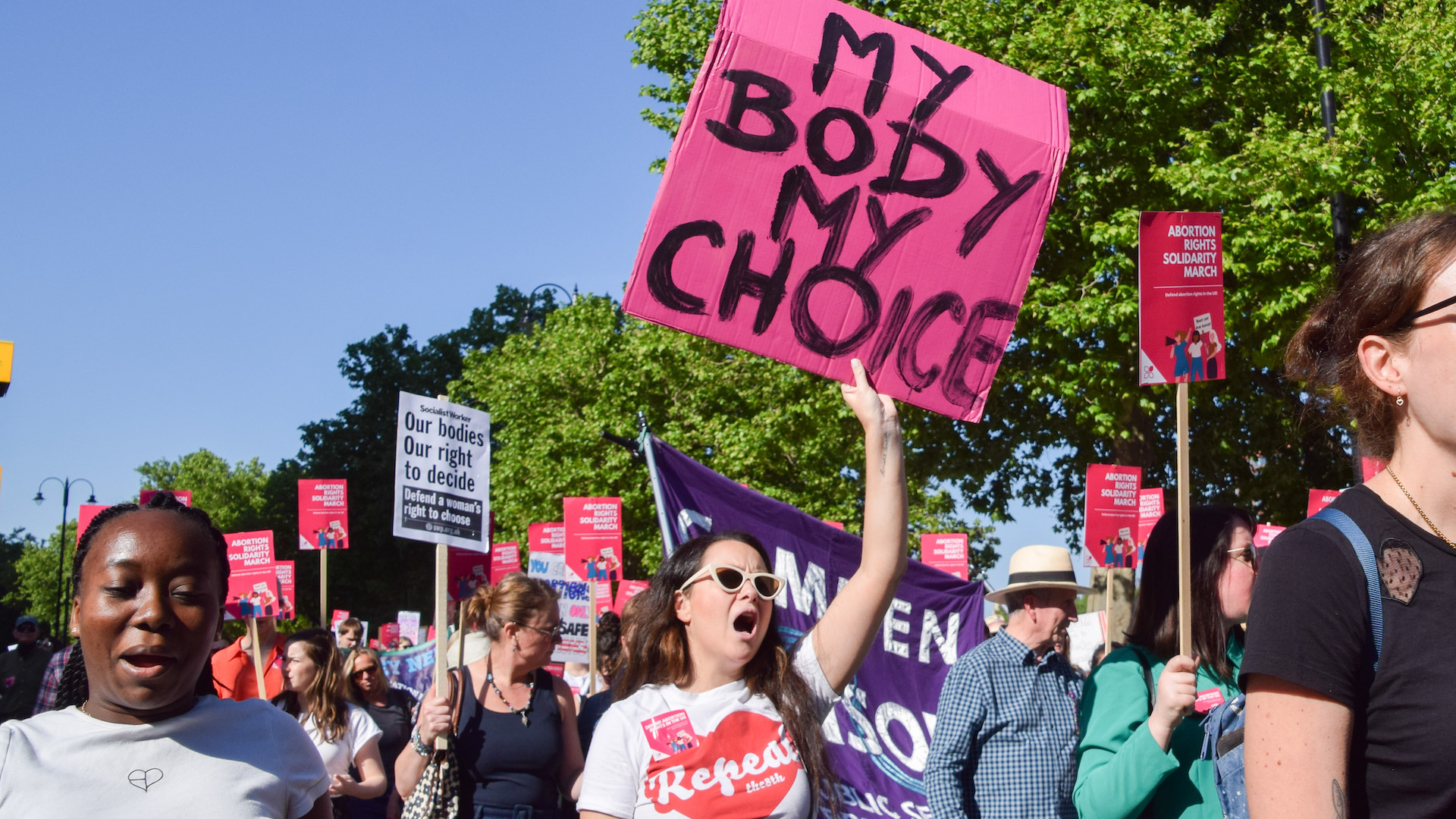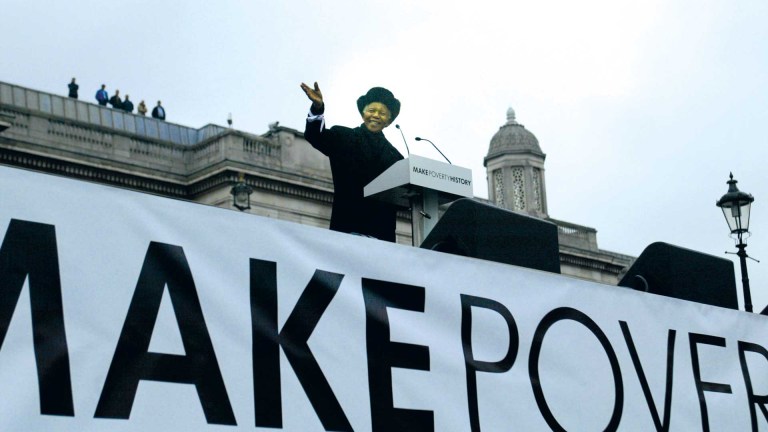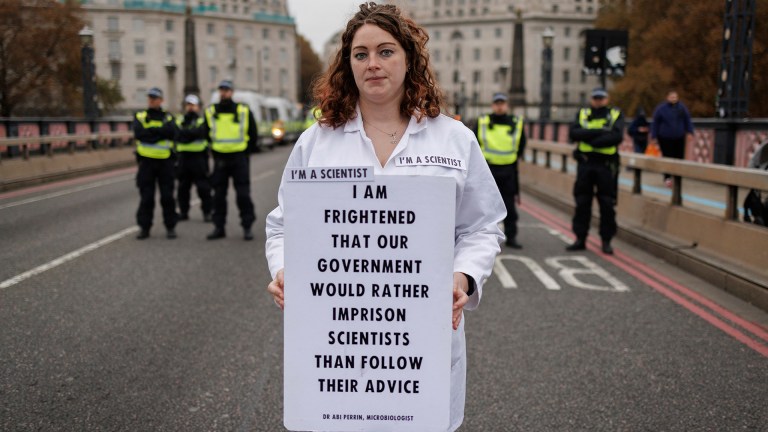Thousands marched to demand reform in UK abortion law on Saturday after a mother of three was sentenced to two years in prison for taking abortion pills after the legal time period.
Prosecutors said the woman knowingly misled the British Pregnancy Advisory Service (BPAS) into sending abortion pills after the legal cut-off period, but the case has struck a chord across the nation. Campaigners and MPs have responded with outrage and social media is awash with shock that abortion is still criminalised in the UK.
“We want every party to have abortion reform in their manifestos before the next general election. And they can. It’s about political will,” said Mandu Reid, leader of the Women’s Equality Party, which is organising the march from the Royal Courts of Justice to Westminster on Saturday. “This is just the beginning. We will keep protesting for change.”
Abortion law in Britain was last reformed In 1967 (2020 in Northern Ireland) but abortions are still illegal under the antiquated 1861 Offences Against the Person Act. The 1967 Abortion Act legalised terminations of pregnancies of up to 28 weeks (later reduced to 24 weeks), provided it was approved by two doctors. It transformed women’s healthcare and was a leap forward for reproductive rights.
Before that, the 1861 Offences against the Person Act meant that any woman who tried to have an abortion could get a life sentence. The Act, which was passed at a time when women didn’t have the vote and penicillin wouldn’t be discovered for another 68 years, has never been repealed, meaning a woman who has an unregulated abortion or attempts to terminate a pregnancy without medical supervision can be prosecuted.
Doctors believe the woman prosecuted this week was between seven and eight months pregnant when she took abortion pills received by post. Abortion pills are legal up to 10 weeks of pregnancy after which a procedure is more often carried out in a hospital or clinic.










